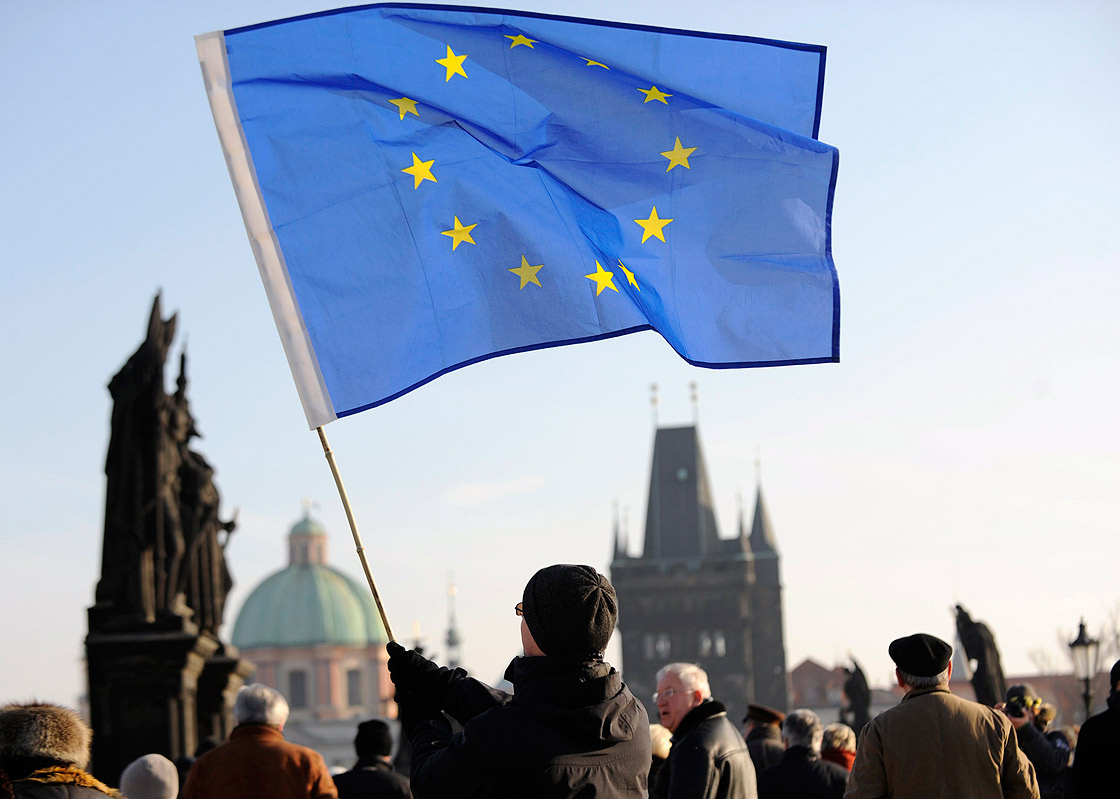OTTAWA – A senior European Union official says he hopes his continent’s free trade deal with Canada will be final by mid year.

Roland Schafer, the Americas director of the European External Action Service, said that’s when he expects Europe’s major free trade talks with the United States to begin.
Schafer said that doesn’t necessarily mean the Canada-EU deal would be consigned to the back burner. But his remarks suggested that European Commission negotiators could soon become preoccupied with their American counterparts.
“The big issue for the next two years is going to be EU-U.S. negotiations,” Schafer told reporters on Wednesday, after meeting Canadian officials the previous day.
“This is going to be a major piece of work for both sides, especially for the commission. And it’s going to take a lot of political attention.”
Schafer said he doesn’t think the pending talks with the U.S. would “affect the capacity” of commission to finish the deal with Canada.
“It’s more a matter of where Canada wants to position itself with regard to a negotiation process that will take political attention.”
Schafer added that a successful conclusion with Canada would send a positive signal to the world and set the tone for the U.S.-EU process.
Schafer said the deal isn’t just about increasing trade.
- Gas prices surge in some parts of Canada. What’s causing pain at the pumps?
- Buzz kill? Gen Z less interested in coffee than older Canadians, survey shows
- Ontario premier calls cost of gas ‘absolutely disgusting,’ raises price-gouging concerns
- Netflix beats subscriber targets, but revenue falls short of forecast
“It’s also a signal to the rest of the world that we’re there to stay, that Europe and Canada look together with optimism into the future and that they, by themselves, can create wealth and jobs and growth,” he said.
Last week, Prime Minister Stephen Harper said considerable progress had been made towards a deal, but obstacles remained.
During a visit by French Prime Minister Jean-Marc Ayrault, Harper said Canada “will only sign a deal when we’re convinced we have a deal that is comprehensive and in the best interests of the Canadian economy.”
Schafer was reluctant to offer new details on what specific obstacles remained, saying that was a matter for the negotiators.
Last week, Ayrault told reporters in Ottawa that the remaining hurdles are in the agricultural and intellectual property sectors.
Last month, the European Union’s trade commissioner said Canada must change its positions for a deal to be struck, but gave no details.
Karel De Gucht told a committee of the European parliament that he hoped the deal would be sealed soon.
Schafer brushed back a suggestion that the European negotiators are presenting Canada with a take-it-or-leave it proposition.
But he did say that EU negotiators are a “tough crowd” and that both sides are in “a real negotiation.”
Schafer said trade was one of many subjects he discussed in a day of meetings Tuesday with the Foreign Affairs Department and the Privy Council Office, the political arm of the prime minister’s office.
They also touched on other issues including climate change, the Arctic, the security situation in West Africa and the fight against illicit drugs in the Americas.
The Latin American illicit drug trade, said Schafer, concerns Europeans because it is directly linked to the financing of the terrorist groups that have been active in Mali and across West Africa.
“The troubles in Mali stem partly from the fact that the Islamist terrorists … have been able to finance themselves very strongly and mainly through money derived from drug trafficking and human being trafficking, which starts actually in Latin America and the producer countries of cocaine, coca in Bolivia and Colombia,” he said.
He said Europe has good co-operation with Canada on working to stem the flow of illegal drugs from the Americas across the Atlantic Ocean.
Schafer said Europe is co-operating well with Canada on justice and governance projects in the Americas.

Comments